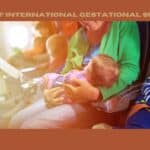There is good news and bad news with this story. The good news is this:
“The much-ballyhooed human embryonic stem cell apparently may share a problem with transplanted organs: a high probability of rejection.” So say the researchers at the Stanford University School of Medicine.
“The finding means that people who may one day be treated using pools of stem cells taken from many lines could reject them, making the therapy useless.
“[This result is] not a disappointment, it’s more of a reality check,” Wu says. “I think there’s some promise [to hESCs], but you don’t want to be foolish and say these cells are going to cure things in the next five years.””
The bad news of course is the reality that this will only encourage researchers to want to pursue “therapeutic cloning“. You know, the idea that we all will have our “own personal repair kit” on the Island for when we get sick and need a treatment.
Author Profile

- Jennifer Lahl, MA, BSN, RN, is founder and president of The Center for Bioethics and Culture Network. Lahl couples her 25 years of experience as a pediatric critical care nurse, a hospital administrator, and a senior-level nursing manager with a deep passion to speak for those who have no voice. Lahl’s writings have appeared in various publications including Cambridge University Press, the San Francisco Chronicle, the Dallas Morning News, and the American Journal of Bioethics. As a field expert, she is routinely interviewed on radio and television including ABC, CBS, PBS, and NPR. She is also called upon to speak alongside lawmakers and members of the scientific community, even being invited to speak to members of the European Parliament in Brussels to address issues of egg trafficking; she has three times addressed the United Nations during the Commission on the Status of Women on egg and womb trafficking.
Latest entries
 infertilityApril 23, 2024The Rise of International Gestational Surrogacy in the U.S.
infertilityApril 23, 2024The Rise of International Gestational Surrogacy in the U.S. Assisted Reproductive TechnologyApril 16, 2024Founder Jennifer Lahl’s Speech on Surrogacy to the Casablanca Declaration
Assisted Reproductive TechnologyApril 16, 2024Founder Jennifer Lahl’s Speech on Surrogacy to the Casablanca Declaration #BigFertilityFebruary 27, 2024No, Alabama Didn’t Ban IVF
#BigFertilityFebruary 27, 2024No, Alabama Didn’t Ban IVF ArticleSeptember 25, 2023The Little Engine That Could
ArticleSeptember 25, 2023The Little Engine That Could

